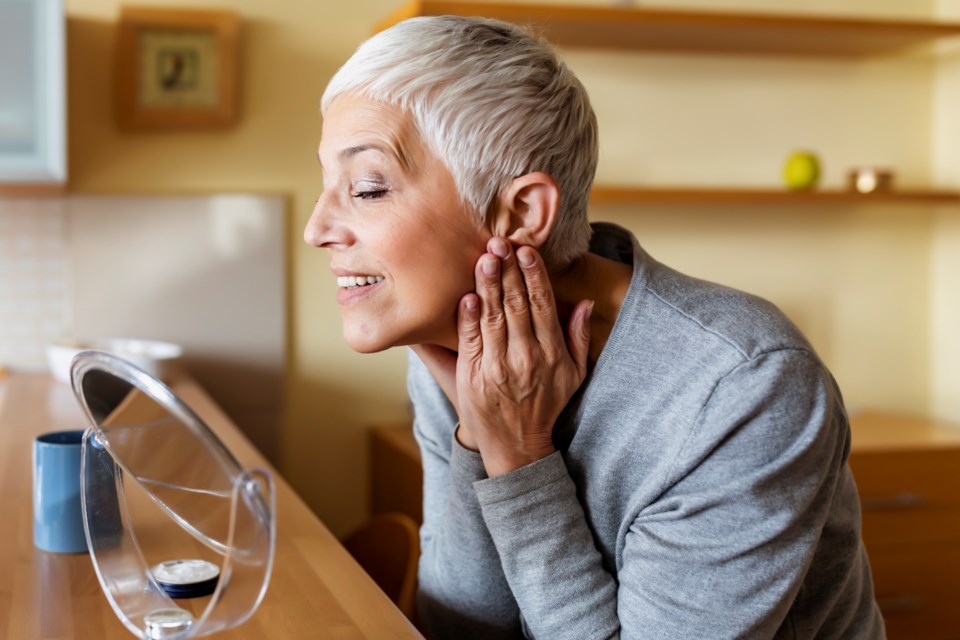We all know how important a good skincare routine is—but maintaining that routine as we age becomes even more essential. As the years go by, fine lines, wrinkles, sagging skin, and sunspots may become more noticeable. These are all natural parts of the aging process, but how we care for our skin can make a big difference in how we look and feel.
Just as you adjust your diet and exercise habits over time, your skincare routine should evolve too. Thoughtful, consistent care can help maintain your skin’s health, radiance, and resilience. Here are a few easy steps to get you started.
Aging Skin Challenges
Mature skin carries a distinct set of challenges - dry, rough, and itchy spots are common, decreased elasticity causes skin to sag, and fine lines and deep wrinkles set in. You can’t expect to tackle a new set of age-related issues with the same skincare routine you once relied on. Tried and true products might not be as effective anymore - some might even irritate your skin! Making simple changes to your skincare routine or product line can help alleviate some age-related concerns.
Cleansing is Still Key
Cleansing is the first step in a good skincare routine at any age. To combat dry, rough skin, use a gentle, moisturizing cleanser on your face in the morning and night. Avoid products that have alcohol, heavy fragrances, or that can deplete your skin of natural oils. Instead, look for dermatologist-tested products that moisturize and are suitable for sensitive skin. Cleansers that contain ingredients like shea butter or oats is a great place to start. Remember not to scrub too hard while cleansing, as it can further aggravate rough or broken skin. Also, when bathing or showering, use warm water instead of hot and leave your skin a little damp when drying off to retain moisture.
Optimal Toners
Applying a facial toner after cleansing gets rid of any residual dirt. It can also adjust your skin’s pH levels to help serums and moisturizers be more effective. Optimal anti-aging toners will brighten dull skin and reduce fine lines, dark spots, and sunspots. Look for a toner with powerful antioxidants that combat free radicals that can damage skin and cause additional signs of aging. Products that contain vitamin C, vitamin E, and retinol (vitamin A) are prime examples.
Photo: MesquitaFMS via gettyimages.com
Serums and Moisturizers
Serums geared toward reducing fine lines and wrinkles contain active ingredients such as vitamin C, hyaluronic acid, peptides, and vitamin E. These agents can help boost collagen and improve your skin’s elasticity. It’s important to choose a serum that matches your skin type – such as for sensitive skin – or one rated “for all skin types.” Check out this list for some of the best anti-aging serums out there.
Mature skin sheds less often. Therefore, it also loses the opportunity to renew itself, which leads to duller looking skin. Applying moisturizers for aging skin daily can combat this issue and help restore your skin’s youthful rosy tone. Using fragrance-free products will help reduce skin irritation and it's recommended to use a moisturizer in an attempt to “trap water in your skin” as part of your anti-aging skincare routine.
Never Skip or Skimp on Sunscreen
Blocking harmful UV rays from the sun is essential at every age - apply a generous amount of sunscreen with a minimum of 30 SPF protection when you’re exposed to the sun. Some moisturizers might already contain sunscreen! Damaging UV rays from years in the sun can cause dark spots and fine lines, not to mention skin cancer. Remember to reapply sunscreen after swimming, excessive sweating, or long periods outdoors to reduce your risk. Seek shady areas, wear protective clothing and a hat, and limit your time in the sun for extra protection.
Do Regular Skin Cancer Checks
You should do regular skin cancer self-checks to look for new or unusual growths, bleeding or discoloured moles, or a sore that won’t heal. Finally, get regular skin cancer screenings with your dermatologist and seek medical treatment immediately if you see anything suspicious on your skin.
As we age, our bodies and skin require different self-care than when we were younger. Make these tips part of your daily routine, and your skin will thank you!




